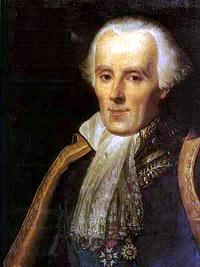The problem of imperfect design in nature raises serious concerns for the idea of God as the divine engineer, the metaphor put forward by those associated with the Intelligent Design movement. After all, if God designed each detail in the blueprint of life, why would he create mammalian eyes which have a blind spot? The basis of this blank area in our field of vision is that the nerve fibers converge over the top of the retina, thereby covering up one tiny area as they enter the optic nerve. As Francisco Ayala has pointed out, the eye of cephalopods like the octopus doesn’t have a blind spot. It is structured in a different way. “Did the Designer…exhibit greater care in designing their eyes than ours?” he asks. Imperfect design comes about because of limitations set up by the pathway through which an organ arose in history. The evolutionary origin of the eye of mammals is different than that of the octopus. Evolution tinkers with whatever “raw equipment” is available. The result, sometimes, is a less-than-perfect design. Ayala gives numerous examples.
However, as Karl Giberson notes in his lecture “Wrestling with Darwin”, perhaps such problems come from our choice of metaphor. “All of this [concern with design] is driven by a prevailing but kind of unexamined metaphor that we should think of God as an engineer and so we should bring engineering questions to creation and evaluate them as engineering projects,” says Giberson.
Yet what if we view God through another metaphor, like that of an artist? Certainly, this does not solve the engineering problems, but it causes us not to look at them as engineering problems anymore. Furthermore, as Giberson notes, “We might begin to see the world as creative and extravagant in its beauty rather than red in tooth in claw.”
In their book Questions of Truth, John Polkinghorne and Nicholas Beale raise a similar challenge to viewing God as an engineer:
“God is never spoken of as a ‘designer’ in the Bible; he is theCreator and Father, and a father does not ‘design’ his children. Even agreat creative writer does not exactly ‘design’ his or her characters,and in any performance, whether of a play or a piece of music, theindividual decisions and actions of the performer are vital elements inaddition to the intentions of the playwright or composer. By endowingus with free will and giving us the capacity to love, God calls us tobe in a limited but very important sense co-creators.”
from Questions of Truth, p. 57

